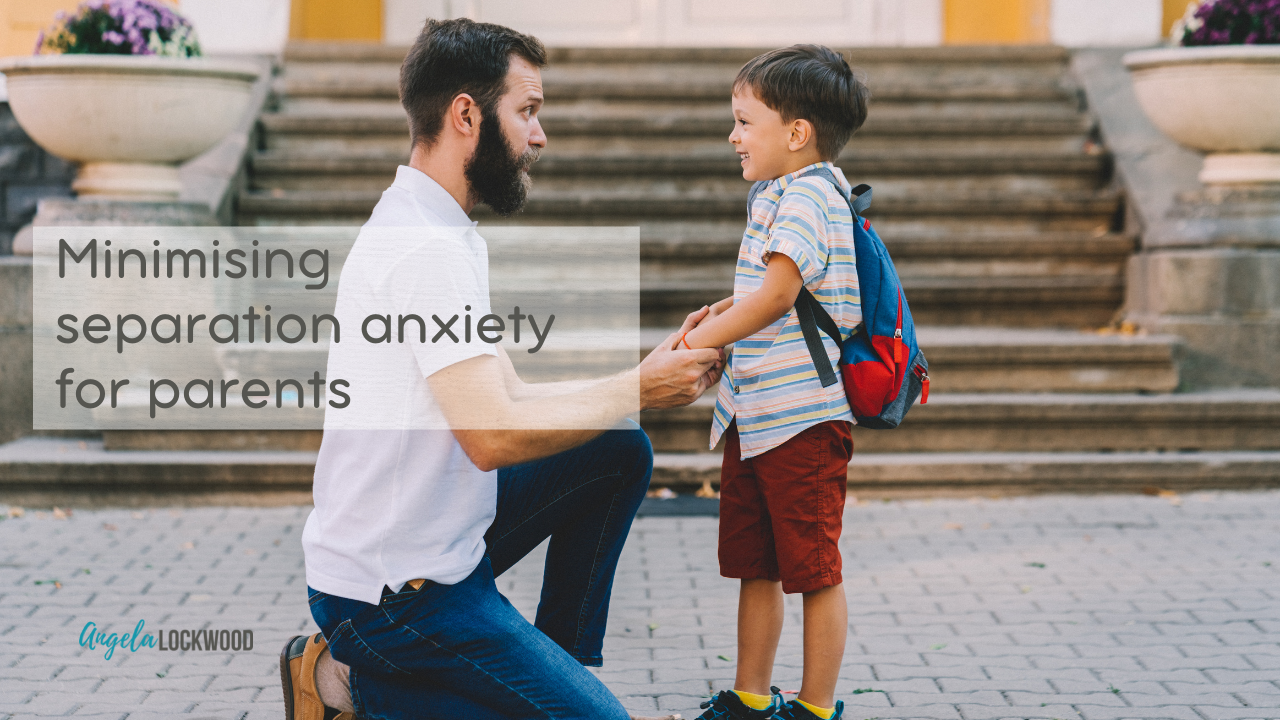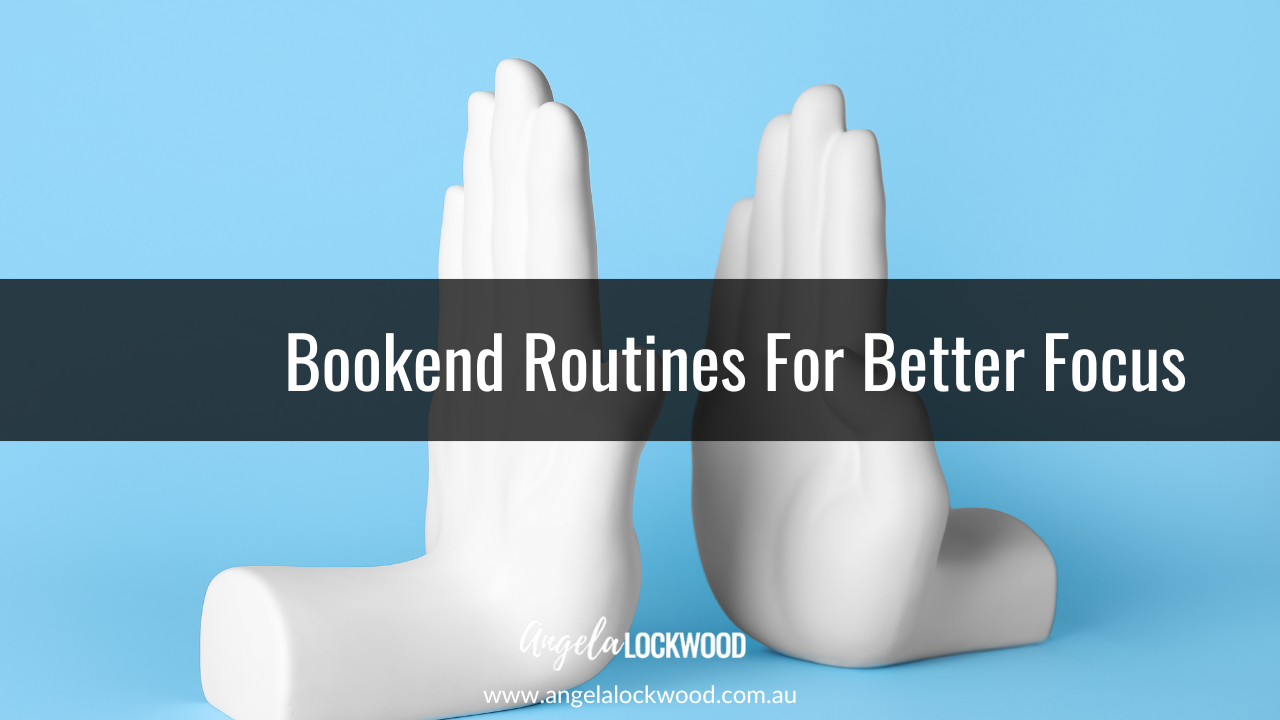Minimising separation anxiety for parents
Mar 21, 2023
As much as starting school can cause separation anxiety in children, it can also be a difficult time for parents. It’s not uncommon for parents to experience feelings of worry, sadness, and guilt when leaving their child at school. However, there are things parents can do to help manage their own separation anxiety and make the transition easier for both themselves and their child.
As shared in a previous article “Minimising separation anxiety for kids" separation anxiety occurs when a person experiences fear or distress when they are separated from a person or place that provides them with a sense of safety or security. We understand this when seen in our kids however as parents we often dismiss or do not recognise when we may be experiencing it ourselves. So how might separation anxiety look in adults?
- Excessive worry: Adults with separation anxiety may worry excessively about the safety and well-being of their loved ones, and may have difficulty functioning when they are away from them.
- Avoidance: Adults with separation anxiety may avoid situations that require them to be away from their loved ones, such as travel or social events.
- Physical symptoms: Adults with separation anxiety may experience physical symptoms such as chest pain, shortness of breath, and nausea when faced with the prospect of separation.
- Need for constant reassurance: Adults with separation anxiety may need frequent reassurance from their loved ones, and may have difficulty managing their anxiety without this support.
When it comes to saying goodbye to our children at school all of these symptoms may manifest all at once or only one or two may apply. Either way the thought of and act of being away from your child brings forth feelings of discomfort and for some people is debilitating. If your child is also experiencing these feelings of anxiety when separated from you then the experience becomes a negative one for you both. If you feel you may experience separation anxiety in relation to your child going to school, these strategies may help;
1. Acknowledge Your Feelings
It’s important for parents to acknowledge their own feelings of separation anxiety. It’s natural to feel a sense of loss or worry when leaving your child at school. Acknowledging these feelings can help you cope with them more effectively.
2. Focus on the Positive
It’s important to focus on the positive aspects of your child starting school. Remind yourself of the benefits that come with education, such as socialisation, intellectual development, and new experiences. By focusing on the positive, you’ll feel more optimistic about the changes that come with starting school.
3. Plan Something to Look Forward to
Plan something to look forward to after dropping your child off at school. This can be something as simple as treating yourself to a cup of coffee, going for a walk or doing a workout at the gym or planning a lunch date with a friend. By giving yourself something to look forward to, you’ll be able to shift your focus away from your anxiety and onto something positive.
4. Keep Busy
Keeping busy can be a great way to manage separation anxiety. Whether it’s work, hobbies, or household chores, having something to occupy your time can help take your mind off your worries. It’s important to find a balance between staying busy and taking time for yourself to recharge.
5. Stay Connected
Staying connected with your child’s school can help ease separation anxiety. This can include attending parent-teacher conferences, volunteering in the classroom, or simply staying in touch with the teacher. By staying connected, you’ll be able to stay informed about your child’s progress and feel more involved in their education. A study published in the Journal of Child Psychology and Psychiatry found that parental involvement in the transition to school can help reduce both child and parent anxiety.
It’s important for parents to remember that it’s normal to experience a degree of nervousness or even worry when their child starts school. It’s a big change that can take some time to adjust to. However, if these feelings are stopping the positive experience or impairing function then by implementing the tips listed above, parents can manage their own separation anxiety and make the transition easier for both themselves and their child.
Remember to be patient and kind to yourself, and with time, you’ll both adjust to this new chapter in your lives.
If you are experiencing separation anxiety from your child that is taking it’s toll on your mental well-being or impacting on you or your child , there are several professionals you can consult for help and support.
- Child’s teacher: Your child’s teacher is there as your partner in ensuring your child has a positive school experience. Share with them what you are feeling so they can support you and your child at transition times.
- Mental Health Professional: A mental health professional such as a therapist, psychologist, or psychiatrist can help a parent work through their feelings of separation anxiety. They can offer counseling, coping strategies, and support.
- Pediatrician: A pediatrician can help a parent understand their child's emotional and developmental needs during the transition to school. They can also provide advice on how to address any physical symptoms of anxiety, such as stomach aches or headaches.
- School Counselor: A school counselor can offer support and resources to parents during the transition to school. They can provide information about the school's policies and procedures, offer advice on how to talk to your child about school, and help parents identify any additional resources or support services that may be available.
- Parent Social Group: Joining a parent social group can provide a sense of community and understanding. It can be comforting to connect with other parents who are going through a similar experience, and it can provide an opportunity to share coping strategies and advice.
- Employee Assistance Program (EAP): If a parent's separation anxiety is impacting their work performance, they may be able to access support through their employer's EAP. EAPs offer free, confidential counseling services to employees and their family members.
It's important for parents to know that they don't have to go through separation anxiety alone. There are professionals and resources available to help them manage their feelings and support them during the transition to school.
![]()
Angela Lockwood
TRANSFORM TO THRIVE






